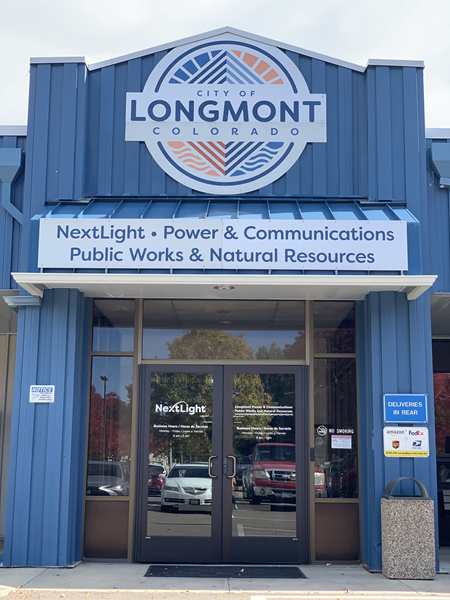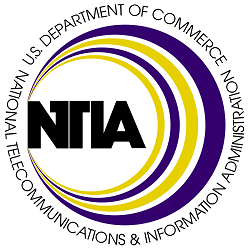
Fast, affordable Internet access for all.

Construction on a new city-owned fiber network in Cabot, Arkansas will soon bring affordable broadband access to every city resident and business in the state’s “Strawberry Capital.”
The network comes courtesy of a partnership with Connect2First, the broadband subsidiary of local power company First Electric Cooperative Corporation, which continues to build on its significant presence across Arkansas.

According to a city announcement, the $20 million network will deliver fiber access at symmetrical speeds of up to 10 gigabit per second (Gbps) via an XGS-PON network passing all 26,000 residents and businesses of Cabot using 220 miles of fiber.
The network, which is expected to take several years to complete, will be built on the back of resident-approved bonds, and won’t utilize state or federal funding.
Construction has already begun in this suburb of Little Rock where city officials say hundreds of residents have already been connected.
In announcing the beginning of construction, Cabot Mayor Ken Kincade said:
“This unique project is the first of its kind in the state of Arkansas where a municipality has built its own fiber network and partnered with a local ISP to provide high speed fiber optic internet services to its constituents. The City of Cabot is thrilled to be able to leverage the proven expertise of Connect2First, who already had a presence in the city and was currently serving surrounding areas.”
*In partnership with Broadband Breakfast, we occasionally republish each other's content. The following story by Broadband Breakfast Reporter Jericho Casper was originally published here.
In a setback to efforts aimed at enhancing broadband access across Wisconsin, the state Senate dealt a blow to three key bills aimed at improving various aspects of broadband provision Monday.
The first bill in question, AB 1180, aimed to give local governments more autonomy by allowing them to apply for broadband grants directly, rather than requiring them to partner with a telecommunications utility or a for-profit organization, as is required under current (state) law.

The bill also proposed expanding the permissible uses of grants beyond infrastructure construction and would have eliminated a requirement for a city, village, or town to prepare a feasibility report before constructing or operating facilities for public telecommunications, cable TV or broadband services.
Presently, Wisconsin law necessitates a public hearing before a local government can pass an ordinance or resolution to provision such facilities. Additionally, at least 30 days before this hearing, these entities must furnish a comprehensive report to the public, detailing the facility's costs, revenues, and a cost-benefit analysis spanning three years. AB 1180 would have waived the need for this report preparation.
Manding Internet Service Providers Deliver Advertised Speeds
Since it first broke ground in 2014, Longmont, Colorado’s community-owned NextLight fiber network has won numerous awards and inspired countless communities nationwide.
With its citywide deployment nearing completion, and counterproductive state legal restrictions in the rear view mirror, city leaders are now working to expand the network beyond city limits.
City officials tell ILSR that network construction has now crossed north of Colorado Highway 66, outside of city limits and into the Anhawa and Strawberry Circle neighborhoods. The extension will bring service to around 125 homes that previously had access to Longmont electrical utility service, but not broadband.
Longmont officials say this latest expansion is being financed entirely by subscriber revenues and money set aside for capital projects, with no bonding or other supplementary funds involved.

“We’ve been carefully evaluating our opportunities for expansion in order to make best use of the community’s resources,” NextLight’s Scott Rochat told ILSR. “Our total investment in this project is just under $300,000; based on our typical rate of adoption, we expect to see about a five-year payback. This also has the benefit of giving us a foothold on the north side of (Highway) 66 to help facilitate more expansion in the future.”
Language added to a New York State budget bill is threatening to undermine a municipal broadband grant program established by Gov. Kathy Hochul’s office earlier this year.
Known as the Municipal Infrastructure Program, it was designed to provide grant funding for municipalities in the state eager to build publicly-owned, locally controlled broadband infrastructure as a way to ensure ubiquitous, affordable access to high-quality Internet after decades of frustration with expensive, spotty and uneven service from the regional monopolies.
Currently, New York state lawmakers are in the midst of budget proposal season in which the Governor’s office and both legislative chambers (the state Senate and Assembly) have until April 1 to reconcile and complete a final budget for the upcoming fiscal year.
Buried near the bottom of the Assembly budget proposal (A8805B) is a Trojan horse legislative sources say is being pushed by lobbyists representing Charter Spectrum, the regional cable monopoly and 2nd largest cable company in the U.S. that was nearly kicked out of New York by state officials in 2018 for atrocious service.
Alabama has announced the release of $148.3 million in new broadband grants via the state’s Capital Projects Fund (CPF), made possible by the 2021 American Rescue Plan Act (ARPA). While regional monopolies like Charter nabbed the lion’s share of state funding (once again), cooperatives also secured significant funding to tackle the rural digital divide.
“High-speed internet service continues to strengthen and expand across the state, and we are taking the necessary strides on this journey to achieve full broadband access for Alabama,” Alabama Governor Kay Ivey said in a prepared statement. “This has been a monumental task, but it is one that will pay multiple dividends for our state and its residents. Today is an exciting day as we announce these latest projects.”
Cable giant Charter Communications (Spectrum) was the biggest winner of state funds, awarded 23 grants totaling $44.8 million to shore up access to 22,000 underserved homes across 25 Alabama counties. The next biggest award recipient was Mediacom, which received $22.8 million in grants to fund deployment to 8,000 homes across six Alabama counties.

All told, 16 providers were awarded grants to expand access to 48 different Alabama counties. While regional monopolies were heavily represented in the awards, four different Alabama cooperatives received $34.8 million in grant funding to expand fiber access to more than 11,092 rural Alabama homes and businesses.
Knoxville, Tennessee's Knoxville Utility Board (KUB) says it has completed the first phase of its ambitious broadband deployment, bringing affordable fiber access to more than 50,000 premises in this city of 192,000 – many for the very first time.
When we last wrote about KUB back in 2021, the city's utility had just received approval to build what will eventually be the biggest municipal broadband network in the U.S.
All told, the $702 million project, known as KUB Fiber, aims to deliver affordable fiber to 210,000 households across KUB’s 688-square-mile service area, taking between seven and ten years to complete.
KUB says that the first phase of fiber deployment involved the installation of more than 1,100 miles of fiber infrastructure. Upgraded users have the option of three tiers of service: symmetrical gigabit per second (Gbps) service for $65 a month; symmetrical 2.5 Gbps service for $150 a month; and symmetrical 10 Gbps service for $300 a month.
KUB’s service tiers do not come with usage caps or long-term contracts. Unlike many municipal operations, KUB is also offering locals the option of bundling television service.
KUB was driven to expand access after more than a decade of local frustration at the slow speeds, high prices, and spotty coverage caused by a notable lack of competition between regional telecom monopolies, AT&T and Comcast (Xfinity). Both companies have attempted to lock down customers via long-term contracts ahead of the network’s completion.
As one local resident said:
“Comcast thanked me for being a customer for 23 years, but it's not because I've had the option to go anywhere else. They have had 23 years to fix these problems and they haven't."
Lancaster, Pennsylvania has revitalized the city’s long percolating plan for a municipal broadband network, this time via a public-private partnership (PPP) with Shenandoah Telecommunications Company (Shentel). The city’s quest for more affordable, reliable broadband is a quest that’s taken the better part of a decade to finally come to fruition.
Lancaster city officials recently announced that they’d selected Shentel with an eye on ensuring uniform broadband availability to the city of 57,000.
“In 2022, the City issued an RFP for a partner to achieve stated goals, which received five responses, and led to the selection of Shentel,” the city said. “The contract will result in Shentel installing fiber at its sole cost to provide service to 100% of the city’s residents. Shentel plans to commence design and construction immediately upon execution of the final agreement.”
According to Lancaster officials, the city hired CTC Technology & Energy Engineering & Business Consulting to evaluate the city’s needs. The determination to proceed with a PPP with Shental was driven, in part, by the historic broadband grant opportunities being created thanks to the 2021 Infrastructure Investment and Jobs Act (IIJA), and the American Rescue Plan Act, the latter of which provided $39.5 million to the city.
As the National Telecommunications and Information Administration (NTIA) continues to move forward in administering the single biggest federal investment to expand high-speed Internet access in U.S. history, each state and U.S. territory is wrestling with how to best spend the windfall as they lay out their Five Year Action Plans and Initial Proposals necessary to claim their portion of the $42.5 billion BEAD program.
One major barrier to providing universal access to fast, reliable and affordable Internet service–long recognized by ILSR, telecom experts, and a growing number of ordinary citizens–are the monopoly-friendly preemption laws that either outright ban or erect insurmountable barriers to building publicly-owned, locally-controlled broadband networks, aka municipal broadband.
Preemption in the BEAD Era
Currently, 17 states have such preemption laws, most of which have filed their Five Year Action Plans and/or their Initial Proposals. In each of those states, at the behest of Big Cable and Telecom incumbents, state lawmakers have erected legislative barriers to municipal broadband to protect the monopoly players from competition, which is at the very heart of why the digital divide exists in the first place and why tens of millions of Americans suffer from the slower speeds and higher costs that go hand in hand with monopoly service.

This week on the show, Christopher is joined once again by Sean Gonsalves, Associate Director for Communications for the Community Broadband Networks initiative at the Institute for Local Self-Reliance. After a short stop to talk about the establishment of a new municipal network in Timnath, Colorado, Christopher and Sean get down to talking about the BEAD 5-Year Plans that states are filing with NTIA to get their hands on the first tranche of what will be an historic pot of federal funds for new broadband investment.
Some states, like Maine and Vermont, Sean shares, are doing lots right: setting high bars for new infrastructure, listening to communities about their needs, folding in digital equity initiatives, and thinking about how to reach the last households that BEAD will fall short of. Others, like Pennsylvania, seem written with the intent to waste public money and leaves tens of thousands of households stranded with poor or no service - in other words, exactly what the monopoly cable and telephone companies want.
This show is 37 minutes long and can be played on this page or via Apple Podcasts or the tool of your choice using this feed.
Transcript below.
We want your feedback and suggestions for the show-please e-mail us or leave a comment below.
Listen to other episodes here or view all episodes in our index. See other podcasts from the Institute for Local Self-Reliance here.
Thanks to Arne Huseby for the music. The song is Warm Duck Shuffle and is licensed under a Creative Commons Attribution (3.0) license.
The key for states to unlock their portion of the $42.5 billion in federal BEAD funds is the submission and approval of their Five Year Action Plans and Final Proposal. The infrastructure law requires states to first file an action plan, and then prepare more detailed Initial Proposals, allowing residents and stakeholders to submit public comments.
So far, 14 states have filed their Five Year Action Plans with the National Telecommunications and Information Administration (NTIA), the Treasury Department agency in charge of allocating the funds to each state and U.S. territory. According to the NTIA’s website, Maine, Louisiana, Delaware, Georgia, Hawaii, Idaho, Kansas, Montana, North Carolina, Ohio, Oregon, Pennsylvania, Utah, and Vermont have all filed their draft Five Year Action Plans.

The states that are now in the process of completing their Initial Proposals include: Delaware, Kansas, Louisiana, Montana, Ohio, Tennessee, Vermont, Virginia and Wyoming.
Today, we will look at two states (Maine and Louisiana) and follow up with the others as we are getting a clearer picture of how each state intends to put this historic infusion of federal funds to use.
Maine